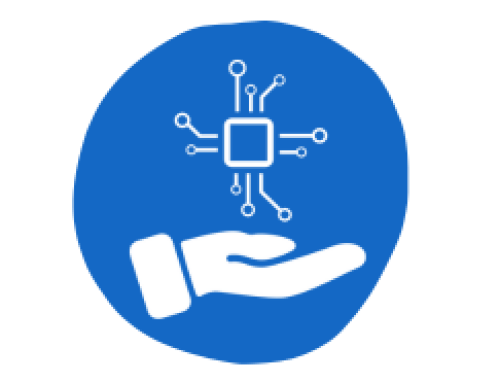The Focus Area of Eco-Responsible Society aims for young people to contribute to a society that respects planetary boundaries.
Objectives
1.AEGEE fosters systemic understanding of planetary boundaries among young people.
While many young people are aware of the climate crisis, other environmental crises are less well-known. In order to address the current environmental crises, an understanding of the planetary boundaries and their underlying natural processes is needed. Through organising workshops and providing access to information, we can create a holistic understanding among young people. Once young people understand the working of Earth’s systems, they can propose and advocate for systemic solutions to these environmental crises. Through AEGEE’s wide reach and interdisciplinary nature, we can bring complex concepts such as systems thinking and the planetary boundaries to a wider audience and discuss these from multiple perspectives.
2.AEGEE helps young Europeans to critically understand how economic structures must change to stay within planetary boundaries.
Current economic structures contribute to the crossing of multiple planetary boundaries. For example, increasing consumption driven by economic growth leads to increased extraction of natural resources, more pollution and rapid conversion of natural ecosystems. In the interest of preserving a habitable Earth for future generations, it is important for economic structures to change so that planetary boundaries are respected. To help shape this change, AEGEE has to educate young Europeans on how economic structures work and how they currently lead to the crossing of multiple planetary boundaries, and how these structures must evolve to stay within planetary limits. By using the existing knowledge and expertise of the Network as well as cooperating with relevant stakeholders and experts, AEGEEans will be able to contribute to a better understanding of the need and possibilities to change economic structures.
3.AEGEE advocates for prioritising social and environmental well-being over economic growth.
Economic progress is currently measured as an increase in the Gross Domestic Product (GDP), but this measurement does not represent social or environmental well-being. It is assumed that if the economy grows, everyone will benefit, through for example a raised standard of living. However, this is not the case, even in highly developed countries. The focus on solely economic growth has created a situation where planetary boundaries are being exceeded while human needs are not met. As an organisation representing young people, whose future depends on a healthy habitable planet and a society that provides for all, AEGEE should encourage policy-and decision makers to prioritise an economy that serves the people and planet rather than economic growth. AEGEEans can promote sustainable economic indexes and frameworks that measure social and environmental progress, such as the Sustainable Development Index, and Doughnut Economics, to emphasise that economic progress is not about growing the economy, but about increasing the wellbeing of people and the planet.
4.AEGEE provides opportunities for young Europeans to learn how to ensure inclusion in the sustainable transition, especially of less privileged groups.
Various groups of people are currently being excluded from the sustainable transition for different reasons. For example, sustainable options are often more expensive, take more time or require more effort, and vulnerable groups such as tenants often have little influence on sustainability in their surroundings. This prevents them from taking decisions in line with environmental sustainability. So far AEGEE has not had a focus on the topic of how we can increase inclusion in this transition towards a more eco-responsible society. That is why we need to develop an expanded understanding of access, affordability and opportunity in the sustainable transition and what role social and economic policies can play in this. Once we have an understanding of their role, we can advocate for social and economic structures that enable people, especially less privileged groups, to make decisions in line with environmental sustainability. We can do this by cooperating with other NGOs, who are already knowledgeable about the topic of inclusivity in the sustainable transition. AEGEE aims to use this knowledge in the future to advocate for a more inclusive sustainable transition.



